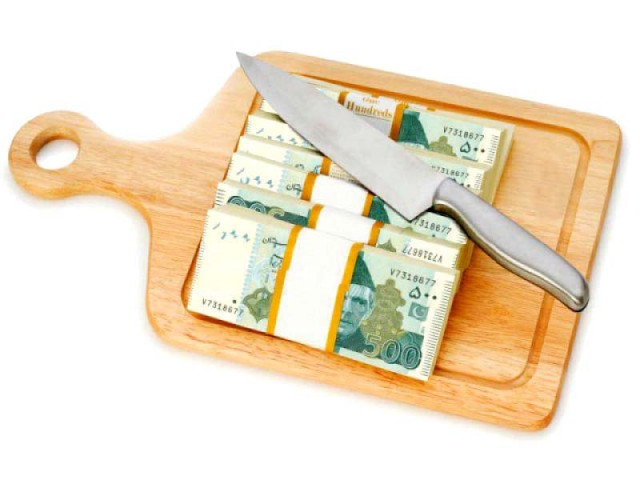Budget deficit: Govt likely to miss current year’s target of Rs1.4 trillion
Chances increase of upward revision in annual target in upcoming talks with IMF.

Chances increase of upward revision in annual target in upcoming talks with IMF. CREATIVE COMMONS
Despite the introduction of four mini-budgets, the government may miss the current year’s budget deficit target of Rs1.4 trillion, as the gap between expenditures and revenues has already widened to Rs1.1 trillion in the first nine months.
This has also heightened the chances of an upward revision in the annual budget deficit target during upcoming seventh economic review talks with the International Monetary Fund (IMF), starting from May 1 in Dubai.
The IMF will review the performance of economy for the January-March period besides discussing targets for the last quarter (April-June) of the current fiscal year.
In percentage terms, the annual budget deficit target of Rs1.4 trillion is equal to 4.9% of gross domestic product (GDP) and indications are that the government may close the year around 5.4% of GDP, said sources.
Nevertheless, Finance Minister Ishaq Dar sounds optimistic. “The government will restrict the budget deficit to 5%,” he said while talking to The Express Tribune.
The government’s inability to achieve this year’s target will also result in either upward revision in the next fiscal year’s indicative budget deficit target of 4% or it will have to announce extraordinary tax measures to honour its commitments, said a senior finance ministry official on condition of anonymity.
During July-March of the current fiscal year, the budget deficit stood at 3.6% of GDP, which was well within the IMF target, said Federal Finance Secretary Dr Waqar Masood.
The IMF has called for restricting the deficit to Rs1.087 trillion or slightly over 3.7% of GDP.
Although the government has achieved the third-quarter goal, spending was higher than the comparative period of the previous fiscal year, highlighting implications of a steep decline in tax revenues.
For the current year, the government had given Rs2.810 trillion tax target to the Federal Board of Revenue (FBR). But in the first nine months, the FBR could collect only Rs1.766 trillion despite the introduction of four mini-budgets to raise an additional Rs100 billion. This is over and above Rs234 billion worth of taxes that the government levied at the time of announcing the 2014-15 budget.
The July-March budget deficit target was again achieved by drastically slowing down the release of development funds that stood at only Rs304 billion or 58% of the annual budget of Rs525 billion.
The finance secretary has already stated that actual development spending will depend on how much revenues the FBR collects.
The government will face a serious challenge as it will have to restrict its expenditures that remain comparatively high in the fourth quarter. Historically, the gap between expenditures and revenues remains over 2% of GDP in the fourth quarter alone.
With 3.6% budget deficit in the first three quarters, the government has fiscal space for only 1.3% of GDP.
In the previous fiscal year when the government crossed the budget deficit target, the fourth quarter expenditures were 2.3% of GDP more than the overall revenues. The average budget deficit in the last quarter during the last five years remained at 2.4% of GDP.
IMF’s conditions
The budget deficit is among the five quantitative performance criteria that the IMF has set to achieve in order to qualify for quarterly loan tranches. This target was the only condition that the government has been meeting during the last one and a half years of implementation of the IMF programme.
On Saturday, the government discussed the possibility of seeking a relaxation against this year as well as next year’s budget deficit targets, the sources said.
Even after cutting down development spending and adjusting privatisation proceeds, the deficit will still be close to 5.4% of GDP.
If the government ends up with a 5.4% deficit, it may ask the IMF to relax next year’s ceiling to 4.4% against 4%, the sources added.
Published in The Express Tribune, April 26th, 2015.
Like Business on Facebook, follow @TribuneBiz on Twitter to stay informed and join in the conversation.



















COMMENTS
Comments are moderated and generally will be posted if they are on-topic and not abusive.
For more information, please see our Comments FAQ